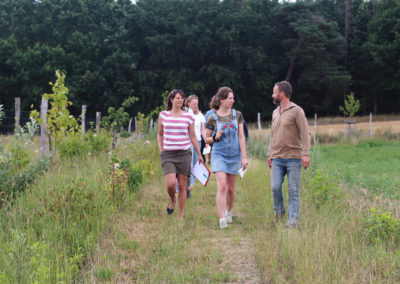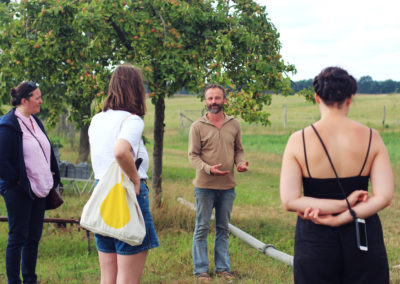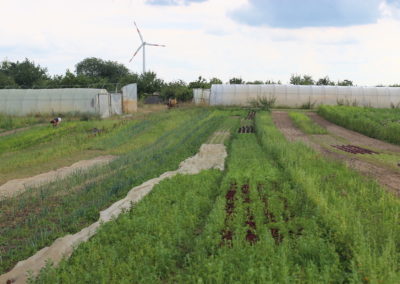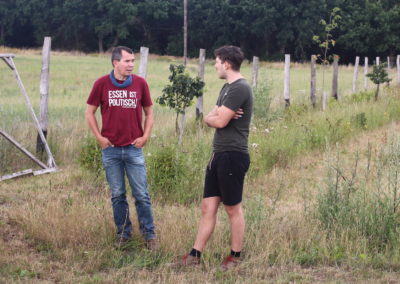Farm visit: Gemüsebaubetrieb Regenbogenhof
We organise farm visits in the Berlin area which are specifically intended for gastronomes and farmers. Our aim is to share knowledge about agricultural cultivation methods, spark a conversation around product quality, and show the connection of individual ingredients to our whole food system. Through these farm visits, we bring producers and cooks closer together and nurture their mutual appreciation.
Matthias Hermsdorf took over the farm in Augustfelde in 1991 and initiated a far-reaching structural change there. He developed an arable landscape with monocultures to a diverse vegetable farm with meadow orchards, sheep and horses: The Regenbogenhof. The grown organic vegetables are marketed mainly through farm boxes in the region. There is also a close partnership with Gutshof Kraatz, which processes the fruit of the meadow orchard into juice and cider. The chefs in the wine tavern cook with their regional vegetables.
The soil at the Regebogenhof is quite good for the circumstances in Brandenburg. Due to the glacial advance of the Scandinavian inland ice during the Ice Age, the composition of the ground varies greatly. Very different types of soil – loamy, sandy or stony – can coexist in the smallest of spaces. The cultivation system is therefore precisely adapted to the soil: This creates a herb garden on lean sites and a vegetable patch across the clayey hillside.
Soil irrigation represents the biggest challenge for Mathias. Rainfall in Augustfelde has been low for three years: He told us the region is “The Bermuda Triangle of dryness”. He built an pond on a lower place at his area, which should serve as open rainwater storage. But it has been empty since spring 2019. In addition, due to the low water level, the pump in the 22-metre deep well doesn´t starts itself anymore and must be operated manually every day – this is a considerable expenditure of time.
Water is an valuable resource and a basic requirement for existence and life. How are we going to work with the dryness in future? We can find some possible solutions in the cultivation of drought-resistant varieties and crops, as well as agroforestry systems and regenerative agriculture. But they are connected with a big amount of work, expenditure of time and staff costs, which are difficult to raise for small farms.
Regenbogenhof: Website
Photos: Carla Ulrich – Instagram | Website



